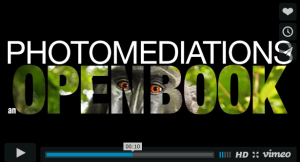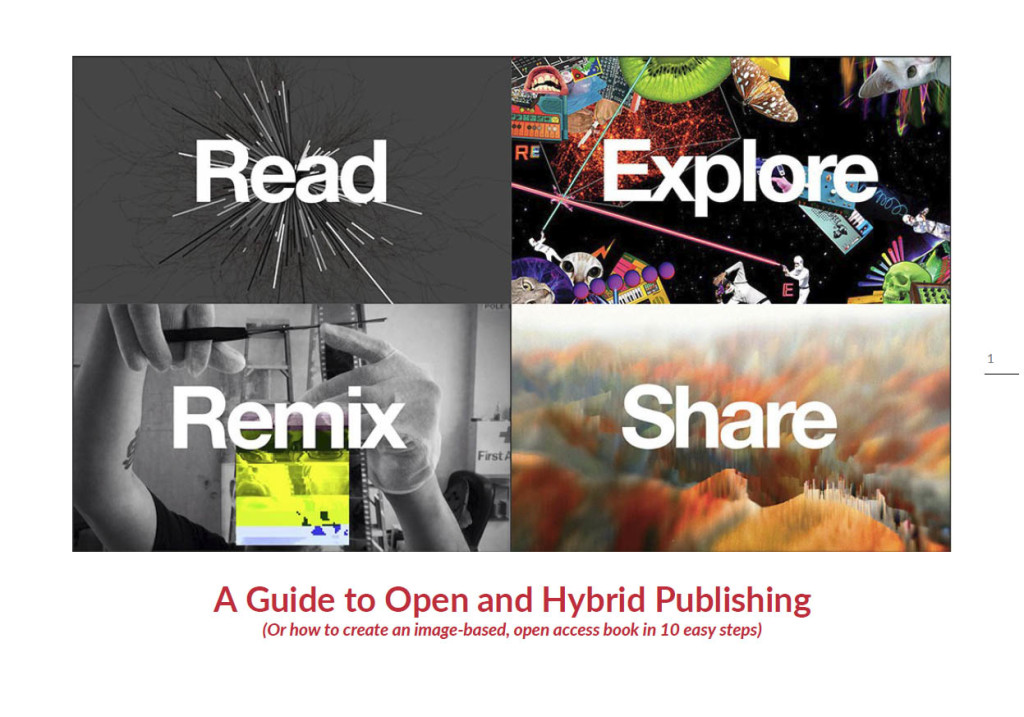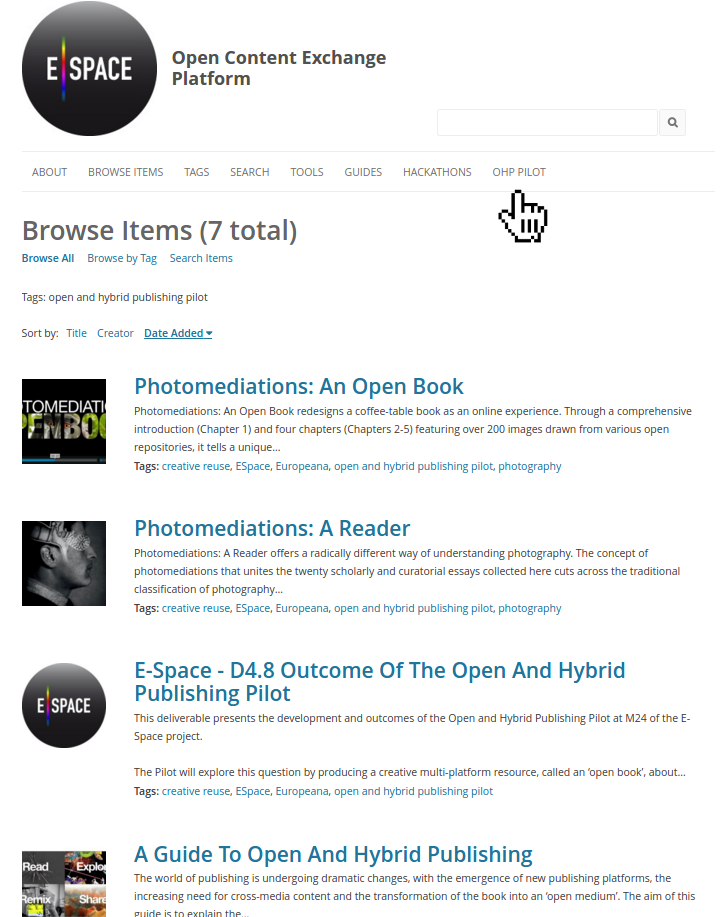Open & Hybrid Publishing: Collated resources
As one of the six thematic pilots in the Europeana Space project, the Open & Hybrid Publishing pilot explores increasingly open and hybrid forms of publishing. Such new forms disrupt traditional publishing structures, giving people the opportunity to become publishers themselves, and not just consumers of published content. The main goals of the pilot, which is led by Joanna Zylinska (Goldsmiths, University of London), are to make more people familiar with the available open cultural content (especially images), as well as to explore a new business model for open and hybrid publishing and share this model with others. In this blog you can find a summary of all relevant resources that the pilot has produced.

First of all, the model for open and hybrid publishing is demonstrated through ‘Photomediations: An Open Book’, a creative online experience of a traditional coffee-table book filled with openly licensed images relating to different aspects of photomedia, as well as academic and curatorial texts. There is also an offline printed version of the written texts available, in the form of a scholarly reader. For those interested in using the model themselves, there is a downloadable brochure ‘A Guide to Open and Hybrid Publishing’, which uses the open book as an example to outline possibilities and offer technical and business advice on how to put the model into practice. Around these outcomes, the pilot organised a series of educational activities, ranging from university classes to an online contest and the Hack the Book festival-cum-hackathon in January 2016.  Openness is a core aspect of this pilot. The online version of the book has been built with open source code, and the images are drawn from various online repositories of open access material, such as Europeana, Flickr: The Commons, and Wikimedia Commons. Work also focused on promoting the social and cultural value of openness, and the idea of open access, especially in educational contexts. With the hybrid aspect in mind, possibilities for generating value or revenue were explored as well, such as making the book freely available online, but selling a paper edition next to it. Another major focus was organising the hackathon, the Hack the Book festival (22-24 January 2016) in Athens, which focused on creating a phygital (physical + digital) book from scratch by remixing and building upon open content from Europeana, and was preceded by educational demonstrations as well as an evening symposium on open book cultures.
Openness is a core aspect of this pilot. The online version of the book has been built with open source code, and the images are drawn from various online repositories of open access material, such as Europeana, Flickr: The Commons, and Wikimedia Commons. Work also focused on promoting the social and cultural value of openness, and the idea of open access, especially in educational contexts. With the hybrid aspect in mind, possibilities for generating value or revenue were explored as well, such as making the book freely available online, but selling a paper edition next to it. Another major focus was organising the hackathon, the Hack the Book festival (22-24 January 2016) in Athens, which focused on creating a phygital (physical + digital) book from scratch by remixing and building upon open content from Europeana, and was preceded by educational demonstrations as well as an evening symposium on open book cultures.
Finally, the pilot is currently curating an exhibition, both online and physical, which will be a celebration of the possibilities of remixing open digital culture. Through an open call, people have been invited to submit still and/or moving image works that creatively reuse – in the form of mashups, collages, montages, tributes or pastiches – one or more original image files taken from Europeana. In this way, different user groups such as students, educators, artists and independent publishers will become familiarised with Europeana content and encouraged to get involved in reusing this content in a creative way. The material received in response to the call will form the basis of a virtual and a real-life exhibition later on in 2016, to be held online and in a real-life venue.
More information
- You can find all the resources of this pilot through the Photomediations website as well as the Open Content Exchange Platform – OHP pilot page
- Follow @photomediations on Twitter for future updates
- Apart from being part of Europeana Space, it is also a sister project to the curated online site Photomediations Machine
- Project team:Professor Joanna Zylinska, Dr Kamila Kuc, Jonathan Shaw, Ross Varney and Dr Michael Wamposzyc. Project advisor: Professor Gary Hall

